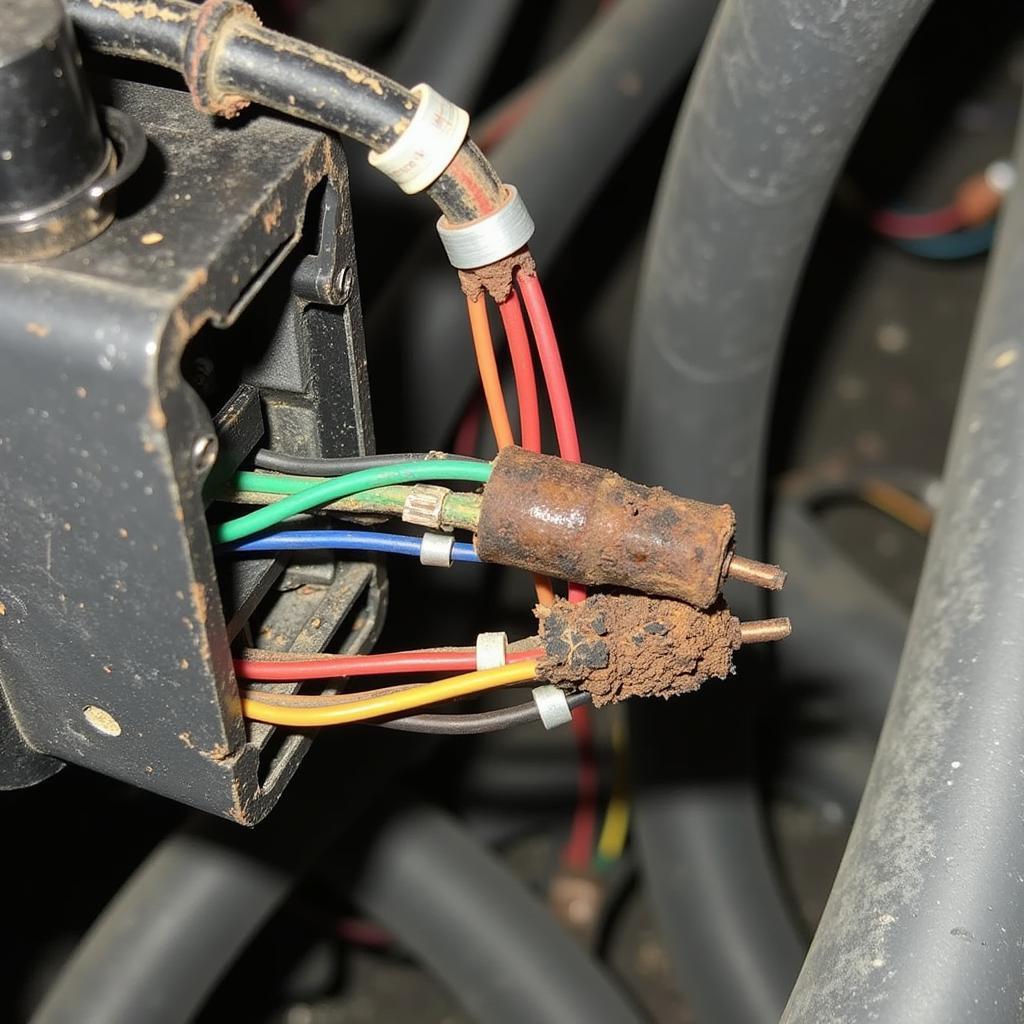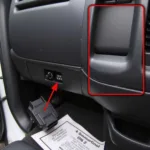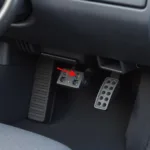The OBD2 code C0550 indicates a malfunction within your vehicle’s Electronic Brake System (EBS). This system plays a crucial role in ensuring your safety by controlling various brake functions, including anti-lock brakes (ABS), electronic stability control (ESC), and traction control systems (TCS). When this code pops up on your OBD2 scanner, it signals a communication breakdown between the EBS control module and other modules in the vehicle’s network.
While this might sound intimidating, understanding the potential causes, symptoms, and solutions for the OBD2 code C0550 can help you address the issue promptly and prevent further damage to your vehicle’s braking system.
Decoding the OBD2 Code C0550
The OBD2 code C0550 specifically points to a “Electronic Brake System Malfunction”. This means there’s a communication error between the EBS control module and other control modules in the vehicle, preventing them from exchanging crucial data.
This lack of communication can disrupt various brake functions, potentially leading to reduced braking performance and safety risks. It’s important to remember that this code alone doesn’t pinpoint the exact fault but rather indicates an area that requires further investigation.
Common Causes of OBD2 Code C0550
Several factors can contribute to the C0550 code, ranging from simple electrical issues to more complex module malfunctions. Here are some of the most common culprits:
-
Faulty Wiring and Connectors: Damaged, corroded, or loose wiring and connectors within the EBS system can disrupt communication signals, leading to the C0550 code. This is often due to exposure to moisture, road salt, or general wear and tear.
-
Malfunctioning EBS Control Module: The EBS control module acts as the brain of your vehicle’s braking system. If this module experiences internal failures or malfunctions, it can disrupt communication and trigger the C0550 code.
-
Low Battery Voltage: A weak or failing battery can cause voltage fluctuations within the vehicle’s electrical system, potentially affecting the EBS module’s operation and communication.
-
Defective Wheel Speed Sensors: Wheel speed sensors play a crucial role in ABS, ESC, and TCS functions. If one or more sensors malfunction, it can disrupt communication with the EBS module and trigger the code.
 Damaged wiring harness connected to the EBS module
Damaged wiring harness connected to the EBS module
Recognizing the Symptoms of OBD2 Code C0550
While the appearance of the OBD2 code C0550 is a clear indicator of an issue, you may also experience various symptoms while driving, including:
- Illuminated ABS Warning Light: The ABS warning light on your dashboard may illuminate, indicating a potential issue with the anti-lock braking system.
- Activated Traction Control Light: The traction control system light may turn on, suggesting a problem with the system’s ability to maintain traction.
- Erratic Braking Performance: You may experience reduced braking efficiency, longer stopping distances, or an unresponsive brake pedal.
- Disabled Cruise Control: In some vehicles, the cruise control system may be automatically disabled when the C0550 code is present.
Diagnosing and Fixing the OBD2 Code C0550
Diagnosing the root cause of the C0550 code requires a systematic approach and the use of an OBD2 scanner.
“When diagnosing the C0550 code, it’s essential to start with a visual inspection of all wiring and connectors related to the EBS system,” says John Miller, a seasoned automotive engineer with over 20 years of experience. “Often, a simple fix like cleaning a corroded connector or tightening a loose connection can resolve the issue.”
Here are the general steps to troubleshoot the OBD2 code C0550:
-
Read and Clear the Code: Begin by connecting your OBD2 scanner to your vehicle’s diagnostic port and reading the stored codes. After noting them, clear the codes and see if the C0550 code returns.
-
Inspect Wiring and Connectors: Thoroughly examine the wiring harness and connectors associated with the EBS module, wheel speed sensors, and related components. Look for any signs of damage, corrosion, or loose connections.
-
Check Battery Voltage: Using a multimeter, check the battery voltage to ensure it’s within the recommended range. A weak or failing battery may require replacement.
-
Inspect Wheel Speed Sensors: Visually inspect each wheel speed sensor for any signs of damage or debris. Additionally, check the sensor’s wiring and connectors for any issues.
-
Test EBS Control Module: If the previous steps don’t reveal the cause, you may need to test the EBS control module using specialized diagnostic equipment. This is best left to a qualified mechanic.
Conclusion
The OBD2 code C0550 indicates a potentially serious issue within your vehicle’s braking system. Ignoring this code could lead to further damage and compromise your safety on the road. By understanding the common causes, symptoms, and diagnostic steps, you can address the issue promptly and ensure the optimal performance and reliability of your vehicle’s braking system. Remember, consulting a qualified mechanic is always recommended for accurate diagnosis and repair.
Frequently Asked Questions (FAQs)
Q1: Can I still drive my car with the OBD2 code C0550?
While it might be possible to drive for a short distance, it’s not recommended as the malfunctioning EBS system could lead to reduced braking performance and safety risks.
Q2: How much does it cost to fix the OBD2 code C0550?
The repair cost depends on the underlying cause. A simple wiring repair might cost under $100, while replacing the EBS module could cost several hundred dollars.
Q3: Can I fix the OBD2 code C0550 myself?
If you have experience with automotive repairs, you can attempt to diagnose and fix simple issues like wiring problems. However, for more complex issues like module replacement, it’s best to consult a qualified mechanic.
Q4: What happens if I ignore the OBD2 code C0550?
Ignoring the code could lead to further damage to the braking system, potentially resulting in costly repairs and increased safety risks while driving.
Q5: How often should I get my car’s braking system checked?
It’s recommended to have your vehicle’s braking system inspected by a qualified mechanic at least once a year or as part of your regular maintenance schedule.
Need further assistance with your car troubles? Reach out to our expert team via WhatsApp: +1(641)206-8880, or Email: [email protected]. We offer 24/7 customer support to address all your automotive needs. You can also find more helpful articles and resources about other OBD2 codes on our website.

